Want to know how to improve your website’s SEO in 2023?
This article is written for Business Owners, Marketing Directors and SEO practitioners. Read on and you’ll gain a greater understanding of SEO today and the factors that will make your website rank better over the next 12 months. If you’re a business owner it’ll remove the smoke and mirrors that have often plagued the field of SEO. If you’re a marketer, it’ll show you how to better support your clients. For most businesses, SERPs (Search Engine Ranking Positions) can be transformative for growth and business development. Imagine your website on the first page of Google like being interviewed for a spot on national primetime television but better because the programme viewers have already demonstrated a specific intention to listen to exactly what you’ve got to say.
A bit of background. For the past decade, I’ve written a yearly forecast article on SEO (Search Engine Optimisation), outlining the practices and technical approaches needed to help websites rank better and more sustainably for the following year/s. You want better SERPs of course, you also want them to be sustainable so you need to understand the factors that influence rankings and what tactics your competitors might be using. Over the past decade, I’ve successfully trained marketers, internal teams and agencies in the UK and overseas in SEO best practices. Some of my students have gone on to work at companies like LinkedIn, Facebook and enterprise-level businesses. Some have also gone on to form their own agencies, reaching out for regular tune-ups when information and research have become convoluted.
I’ve written this article in two sections, the first outlines in list format the 12 most fundamental factors you need to consider to support your SEO in 2023. The second section is a more comprehensive deep-dive into the factors that will impact your website’s performance. Both sections will add value and support your knowledge, whether you’re a complete beginner or a seasoned expert. This article is written in a way that hopefully ensures that the knowledge is accessible to all. At the end of the article, I’ve also included an FAQ section covering questions often asked in seminars by my students. Every Business Owner and Marketing Director/Manager knows that their website is only as useful as it is visible. A website is pretty pointless without adequate and specific traffic. Here are some useful figures to consider. The first search result on Google has an average CTR (Click Through Rate) between 25 to 30%! The second search result has an average CTR of 15%! To help your business grow, we need your website to rank better. Let’s begin.
This quickfire list will ensure that at the very least you have an understanding of actions you and/or your SEO specialist can do today to support your website’s SEO rankings. Google’s algorithm is constantly evolving. Updates to the way search results are ranked happen up to 600 times a year. If you’ve been in the sector for some time you’ll know some of the more notable updates like Penguin, the Google Caffeine update in 2009 that resulted in faster and more accurate search results and the fifth Product Reviews update in September 2022, which ranks product review-related content. Google is constantly changing but these 12 fundamentals will give you both short and long-term advantages. They are sustainable elements to focus on to improve your SEO.
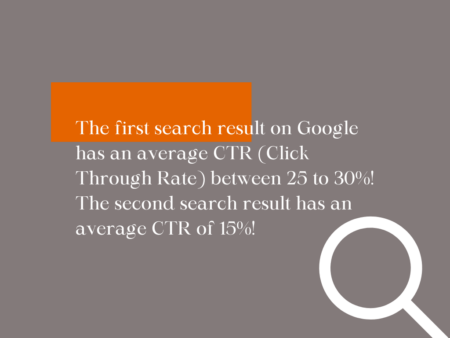
Clean page design is a priority. Don’t compromise usability for design. Complicated design choices don’t equate to positive user experiences. Balance content accessibility alongside design creative. Your website doesn’t need to be a fairground ride. Inclusivity should be at the heart of your design. Information requires clear and considered formatting, strong and easily understood CTAs (Calls to action), answering questions quickly, preventing pogo-sticking (more on this later) and further search queries for the same term. If you have the budget, consider conducting audience focus groups on design choices and work with a marketing firm that puts the user at the heart of the design process. Backend developers rarely make good frontend designers and vice versa. That’s why at Mantra Media we separate these functions into two separate skill-based teams working collaboratively.
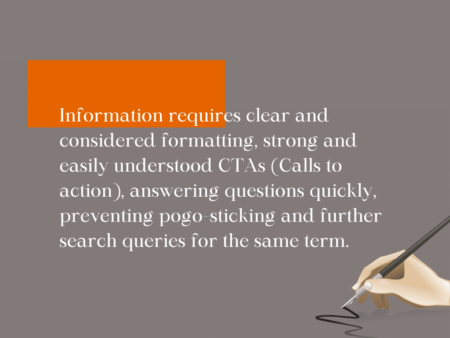
Content is the cornerstone of a high-ranking website. Here are some important questions to consider before your begin building your content. How thoroughly do each of your pages and blog articles provide an answer to the question/s posed by the search query? Do you provide time-based options for your users in short and long-form answers? Do you create content clusters so that your website is included in semantically related searches? Did you copy your website content from competitors? This does nothing for your website and in many cases can cause harm in de-ranking or a penalty. If you’re not a confident writer commission someone to do it for you. It’s better to get this right from the outset, search engines have memories.
Protip! When creating content to rank for a specific search term. Your exact search term should be repeated in the title tag, URL, referring domains to the page/asset, the meta description, in the body text – 5% max, your H1 tag and in the metadata and files names of any multimedia.

All backlinks need to come from solidly ranked domains and should be relevant to the specific subject matter or cluster topic. Never buy links. Those spam emails you receive from overseas promising backlinks for super cheap prices, you know the ones. They often cause damage to your domain that can last a long time. Most black hat techniques will put you in Google jail. Having an automatic or manual penalty against your website because you tried to trick the system is not easy to clean up and can cost some entrepreneurs their businesses. Imagine depending on your online traffic for sales and then becoming unsearchable overnight.
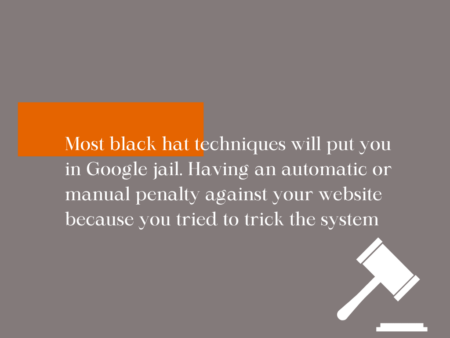
Is your organisation trustable? Does it already show signs of authoritativeness and influence? Is your content written by a trustable writer with a positive reputation around the web? Do they have official certifications from trusted institutions, do you? Are other organisations and media outlets writing about you and/or your company’s credentials? These are all important factors as Google moves towards a more “would I trust you offline” approach. This has accelerated Google’s battle against fake news so it can recommend more trustable content.
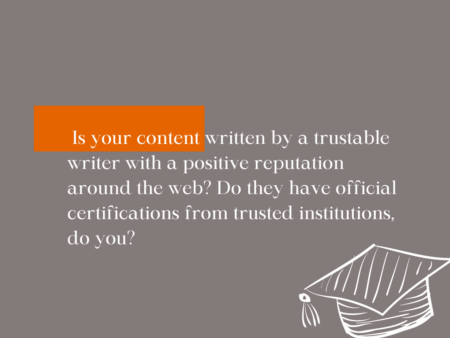
Appropriate use of multimedia (images, infographics, video or interactive tools) on all pages and articles. Rich media will produce a better experience for your users and support greater ranking opportunities. The assets themselves can be ranked if utilised properly. More advice on this later.

Producing only one article on a specific subject matter or keyword is no longer enough. Due to semantic indexing and Google’s user intent approach you now need to produce subject matter clusters. Is your website varied and cohesive on specific subjects, and able to signpost to further useful knowledge that is relevant within your domain? Being able to internally direct to add greater value beyond an initial search query is fundamental now due to Google’s approach to user intent and semantic context.
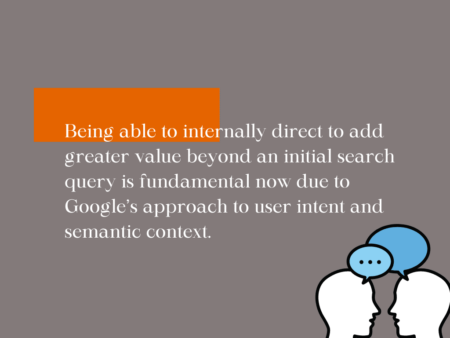
Don’t be a greedy SEO practitioner. It pays to link to further quality content sources consistent with your subject matter across the web. Ensure you conduct domain and backlink research beforehand because backlink communities can be contagiously good or bad. Never forget to ensure that your anchor text is consistent with your search term and URL.
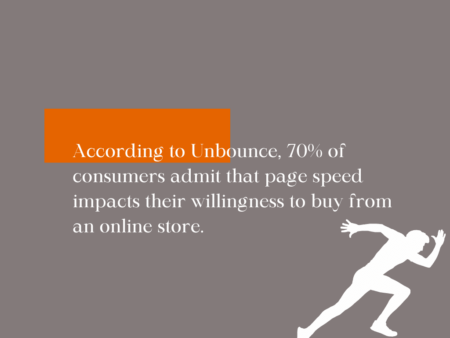
Patience is not a virtue for online users. The slower the objects on your website are to load the less likely a user will either stay or return. According to Unbounce, 70% of consumers admit that page speed impacts their willingness to buy from an online store. This makes image optimisation a crucial step in web design and improving the user experience. If you’re in the bottom 30% of website speeds online, consider seeking help from an SEO expert and another server provider today. If you’re interested in learning about the hosting service that we trust, we use Balliante.
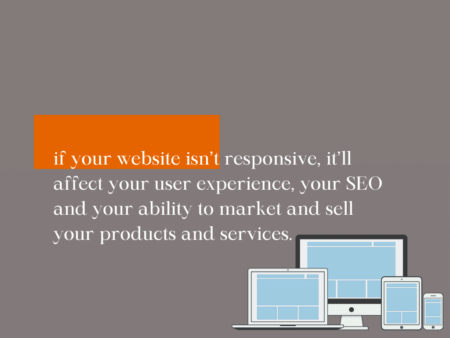
Your website should look great on all devices particularly standard, mobile phones, desktops and tablets. I really shouldn’t need to mention this in 2023 but still, companies get it wrong. I’ve been advising since 2009 that if your website isn’t responsive, it’ll affect your user experience, your SEO and your ability to market and sell your products and services. There are no excuses to not get this right today.

If your website has been around for a while it may need a link/navigation audit. It can take time but is relatively easily sorted, speak with your developer/SEO specialist about conducting an audit. It shouldn’t cost you the world either.

This is a standard security technology for establishing an encrypted link between a server and a client. If you use chrome you know why this is a serious U.X issue. No one likes a warning sign in their browser. If my browser tells me that your website isn’t trustable, will I want to use it? Many desktop and browser security measures flag this to differing degrees, sometimes making a website inaccessible. An easy fix and should be very cheap to sort.
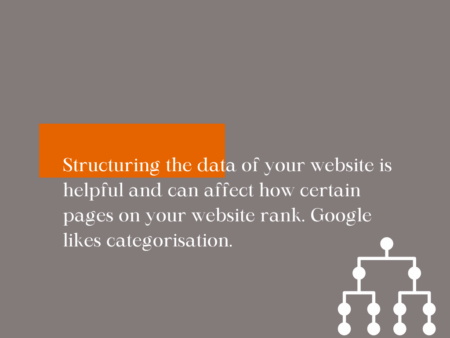
Structuring the data of your website is helpful and can affect how certain pages on your website rank. Google likes categorisation. Being able to tell search engines what your data means rather than just what it says is an easy thing to get right. This is fantastic for venues and event companies. Refer to Stack Overflow if your developer needs support.
If you focus on the above fundamentals of SEO in 2023, you’ll give your website an opportunity to rank well and sustainably. The next section of this article takes a more comprehensive approach to SEO for 2023. It’s designed for those that like detail and could enjoy a more in-depth understanding of SEO. Grab a tea/coffee/matcha, your reading glasses and a comfy chair.
Most professionals trained in search strategy are still solely writing SEO approaches for written search, and today this just isn’t comprehensive enough. I mentioned in my 2019 article that according to Gartner, by 2020, 30% of all web browsing will be done without a screen. Due to the advent of Amazon Echo, Google Home and a raft of new devices entering the market, voice-first interactions have become ubiquitous. According to Voicebot’s Voice Search, nearly 60% of Americans are now using voice search and Google recently reported that nearly 30% of all searches globally are through voice. Marketers need to understand the differences in the ways that particular demographics use spoken language as opposed to written communication. Both lexical choice and syntax in search are changing rapidly and we need to be proactive to be visible. This is important to consider because it’s impacted how Google is using intent and context in the search rather than the specific terminology being input.
As the market is moving more towards voice search also consider the other side of the coin as a ranking factor, listening. Listening to content is a factor that encourages dwell time. If you use WordPress I’d highly suggest the Amazon Polly plugin, it’s a speech recognition tool that will read your content out aloud for your users. This means that people that prefer to listen rather than read will have both options. Also, be mindful of how sophisticated you intend to write about products and services. According to a study by Backlinco, the average Google voice search result is worded at an average literacy level of a 13-year-old. Note that this is a higher literacy level than the average literacy level of written search. Always be mindful of your audience.
Conversational queries? In 2021 Google released LaMDA (Language Model for Dialogue Applications) and announced LaMDA 2 in May of this year. This technology enables the machine to learn and engage in casual dialogue with users. It is designed to discuss all topics and to interpret human expression, context is key! With the implementation of LaMDA, Google focuses on understanding dialogue better. This includes understanding vernacular terminology and how users converse when trying to find what they need. To optimise target key phrases for voice query first. The semantic and context indexing will ensure it appears for relevance in typed search too.
If you’ve asked a ‘how to’ question in Google recently you may have noticed the addition of video packs in search results. Video production has become integral to search. For the best opportunity to appear in search results for your video content you’ll need to optimise your videos on YouTube. Some businesses are a little behind on the power of video production and why it’s so important. Here are some vital statistics that prove it can be an invaluable tool:
You are 53 times more likely to appear on the first page of Google results if your website contains videos.
It’s possible to increase your conversion rate by 80% by simply displaying a video on your landing page.
For eCommerce sites, 90% of people state that videos help them make their purchase decisions.
Video and animation-based rich content are the fastest ways to convey information about your products and services. Google has developed two new functions to help users find the information they need from search enquiries. Clip markups, enable creators to highlight the most important sections of their videos, allowing viewers to jump straight to the point they’re interested in. I’ve used this countless times recently. Seek markups, enabling Google to automatically display the key factors of your videos. To maximise the utility of your videos, incorporate video content throughout your website and target keywords when labelling videos, including key points that a user could be interested in.
Preferred SERPS (Search Engine Ranking Positions) are given to pages that are better designed to support and help the user. The P.Q (Page Quality) rating evaluates this in relation to how quickly and effectively your page delivers a specific and accurate answer to a search query. If the user continues to search other websites after visiting yours for the same query it will appear that your website doesn’t provide an accurate answer to the query so give options in format, length and media.
Popups, try to keep popups and ads to an absolute minimum because they tend to distract from the main body of content. If you have ads on the page, don’t make them big or put them between the content that’s meant to be serving the user. Also, keep in mind that each of these ads will need loading time and this can sometimes drive people away from your website before being able to access the content they originally arrived for. If you’re still lost, refer to the ad quality guidelines from Google.
SSL Certification, Google announced a couple of years ago that this would affect SERPS and there is evidence for this but more importantly you need to be paying attention to the impact this now has on user experience. Chrome now automatically informs all your users if your website isn’t secure with an active SSL. Tech Advisor has stated that Chrome usage accounts for ‘well over half of all web traffic’ indicating that most of the time your users will most likely be using Chrome. According to Search Engine Journal, back in May of 2019, changing from HTTP to HTTPS is now paramount. They went on to state that if you’re wondering whether you should, the answer is ‘unequivocally yes’. If your website isn’t secured with an SSL, contact your hosting provider or web developer. It needs to be actioned today.
Site Speed, Google has been talking about this for years. Google encourages all website managers to track these three specific core metrics, Largest Contentful Paint (LCP), which tracks loading speed, or more specifically, the loading speed of the largest piece of content on the page. First Input Delay (FID), is how long it takes for a person to become interactive with the page. Cumulative Layout Shift, the page’s visual stability. Three things you can do today to improve this? Optimise your server, compress images before uploading and include size attributes and dimensions in your pictures and videos
If you want your website to be as fast as possible wherever a user tries to access it try using a CDN (Content Delivery Network) to load your HTML files. These networks use groups of strategically located servers around the world that could be the edge that helps you deliver your content quicker than the competition. Using a CDN will mean your information will be served from wherever is closest in the world to wherever your audience searching from. Stuck finding a provider for this? Email me and I’ll give you the details of a company that could help.
Building a strong backlink profile is still one of Google’s most valuable ranking factors. Rather than the more links the better, your link profile should establish a reputation following the E-A-T guidelines, (Expertise, Authoritativeness, Trustworthiness). Google has doubled down on penalising websites that create backlinks for SEO. This is made very clear from the guidelines they released. Old strategies used to automatically generate, buy or even trade website links will now seriously damage your SEO. Many of the White Hat SEO strategies used in recent years are now considered Black Hat tactics. If you think you’re only 12 months behind, in real terms you’re probably 5 years behind. Be careful who you hire to do your SEO. You need to do your due diligence and ensure that their finger is firmly on the pulse or your website’s reputation could be ruined very quickly. If you’re already a victim of this, contact a marketing firm with specialists that can help you get back on track.
Google is now looking at the content creator’s online ecosystem to establish the reputation of the creative through varied sources. This includes gathering independent sources from the internet to create an impression of the author’s reputation. This also includes what you write about yourself on your website and this is checked for consistency with everything else that’s written online. The more experts in your field you can get to write about your expertise, the better. In a way similar to academia, your content is being validated by a peer-reviewed approval system. Ways to boost this include, photography featuring the subject matter, (ideally you are in the frame doing the thing you’re writing about). Thorough ‘About’ pages including your credentials, that are evidence-based. Speaking events and conference talks with links, Wikipedia articles, WikiHow, e-books etc… Anything to establish your expertise. All of the above needs to be company based too and a combination of the two is ideal. If you have amazing people within their field in your company that also deliver excellent services, make sure it’s all over your website and backed by positive online PR.
For each page, you’ll need to consider the amount of main content used and its quality. Information should be informative, clear and structured. Make it clear who the author is to help establish the reputation of the content. The Expertise, Authoritativeness, Trustworthiness (E-A-T) of your website, its content, and the author. Ensure that there is an alignment of the page’s purpose with the URL and the content. A few years ago, I wrote about E-A-T (Expertise, Authoritativeness, and Trustworthiness), Google’s answer to try and differentiate great content from fake news. This ranking factor is increasing in weight and this means online PR, strong high-quality backlink strategies and authoritative stories about who you are and the people in your company are going to be important factors more so next year and beyond. Also, consider this as part of your employer branding strategy.
Develop an understanding of the differences between high and low-quality content, Google gives many examples of low, medium and high-quality content in their Search Quality Evaluator Guidelines. The age of the content is also a factor and different experts in the SEO field estimate that it takes anywhere from 10 to 35 weeks for an article to find its long-term place on Google. Pro Tip (If possible on certain subject matters, update and improve your published content over time). You’ll get more value for the same/updated content.
Be careful when using hyperbole and headlines that are overly exaggerated or language used to shock. If this is misaligned with what the user receives within the content you deliver, you’ll be penalised.
Authorship is paramount, ensure that you always make it clear who the author is of the content that’s been published. For eCommerce websites also ensure that it’s easy for the user to understand who handles your customer service inquiries. This will also help with the development of your E-A-T and is extremely important for YMYL (Your Money Your Life) websites. If you’re not familiar with YMYL websites and would like to learn more about this a quick Google search should answer your questions. If you’d like to ask a specific question about this contact me directly here.
Auto-generated content, using this in the main content is a red flag for Google. I’ve been advising organisations since 2012 not to use templates that activate RSS feeds or APIs to create new pages. This will put your website at the lowest level of P.Q ratings.
Bouncing Vs Pogo Sticking, SEO experts used to try and gain the lowest possible Bounce Rates because Google used to favour time on site and it still does if the search query and user journey correspond. High Bounce Rates can now be seen as positive if you’re answering a simple query quickly. It’s user pogo-sticking that you need to watch out for. This is when users ‘Bounce’ from one page to another within your website trying to find the answer to a specific question from their original search query. Be aware of the difference between, Pogo Sticking (Trying to find the answer, bouncing from one page to another), Bouncing (finding the website irrelevant and leaving immediately) and Readable Time Relevance (Getting the answer quickly and efficiently). Now is the time to get serious about your user journeys.
This article could be at least twice, perhaps three times in length with further SEO advice that could be useful. I’ll produce more articles throughout 2023 breaking down into further detail some of the sections discussed above and some new/not yet covered topics on SEO too. If you felt that this article taught you something useful about SEO please leave a comment, like or even share if you’re feeling particularly generous. If you’re interested in SEO services, training for your marketing department or would like to attend one of our upcoming seminars, say hello@mantrahq.com
As promised, I’ve included a useful FAQ section below.
FAQs (Frequently Asked Questions)
SEO is one of my core seminar topics when delivering training to business leaders, marketers and students. After doing this for a number of years I’ve been asked many similar questions at the end of each seminar. Here are some FAQs that have often come up. S = Student and J = Johnny.
S – How long does it take to rank for a specific search term?
J – This depends on a number of competitive SEO factors. It’s important to conduct both qualitative and quantitative research on the top websites currently ranking for the search query you’re interested in targeting. Factors such as domain authority, backlink portfolio, media usage, snippet descriptions, metadata, semantic context and many other elements that support a website’s ability to rank. Once you have an accurate picture of the competitive landscape you’ll be able to plan your page/article accordingly. Developing a macro-level content strategy is going to help you because content clusters are becoming more important than any one article. If you’re doing everything right sometimes you can rank on the first page of Google in weeks rather than months. This does depend on the time invested in all the elements required for success.
S – Why do people keep saying that SEO is dead?
J – Often this is a statement used for hyperbole or because a marketer would prefer to push you towards a social media centric strategy rather than search engine optimisation. People have exclaimed that SEO is Dead since 2013, it’s just nonsense.
S – How do I know if my SEO strategy is working?
J – You should be regularly informed and updated on meaningful metrics, strategies that are working and those that need attention for improvement. Your SEO professional should regularly be coming to you with ideas and approaches based on current trends and SEO algorithmic updates. Moreover, you should be seeing greater relevant website traffic and if possible monitoring onsite conversions and ROI. Nothing beats reliable ROI data. One of our retail clients quadrupled their online sales in 5 months and we were able to track each conversion in relation to our marketing activities.
S – If I can only prioritise one activity for SEO. What should it be?
J – Easy. Content! 1000-word articles, uniquely written, researched and saying something new. The more content the better. Quality is important still, write, write and write. The more you write, the better you’ll get at it and the more your website will become relevant for your specialist subject matter.
S – I’ve heard that you can buy backlinks cheaply and this can improve your ranking. What do you think?
J- If you’re an experienced SEO professional you’ll be looking to earn backlinks through reputable sources rather than buying a 1000 low-level domain links on the cheap. Google has been explicit about this black hat tactic. It’ll damage your domain and could cost you a lot of money to put write. Never go cheap on bin liners and SEO, at some point you’ll end up surrounded by mess.
S – Are there any tools you’d recommend?
J – Yes, Ahrefs is by far the best in class, detailed, accurate and user-friendly. UberSuggests is a great tool for a novice and Semrush is usually a safe bet. If you’re specialising in the field, I’d recommend that you use a few different tools simultaneously because they often find different things.

Author notes – Johnny Pawlik has been writing informative SEO forecast articles for over a decade. He’s developed many marketing courses and mentored entrepreneurs, business owners, SEO professionals, marketers and agencies. Johnny studied Political Philosophy at Oxford University and has over 21 years of international experience in branding, marketing, and strategy. He’s consulted with the European Parliament, the Tokyo Metropolitan Government, British Members of Parliament, Chambers of Commerce in Kyoto and Warsaw, the NHS, the UKTI, and a plethora of others.
Johnny has been featured numerous times in the media including Good Morning Britain, the BBC Political Debates, BBC Radio, Osaka Radio, Asahi Shimbun, Forbes and many others. He has contributed and mentored on boards to many public service providers and societies including the Credit Union, Opera North, Sheffield Futures and 360 Accelerator. He’s also a fellow of the Royal Society of Arts and Commerce, a Chair for the Intelligence Forums, a member of Deloitte’s Climate Action Coalition and has mentored on Ernst & Young’s entrepreneurship programme.
